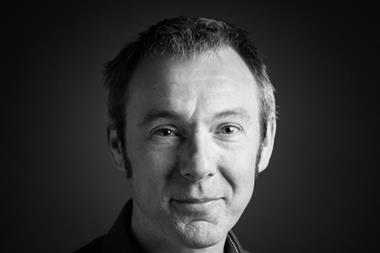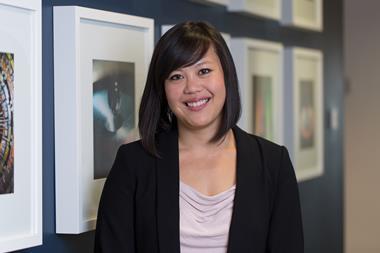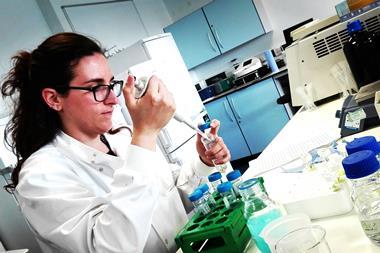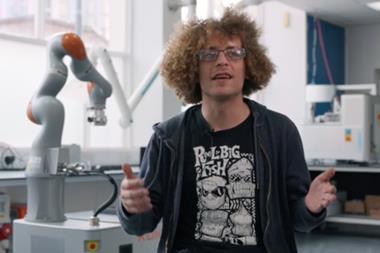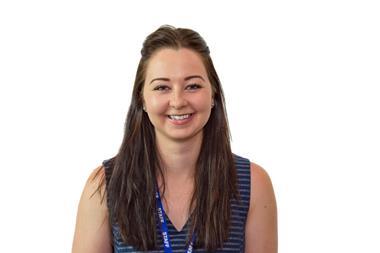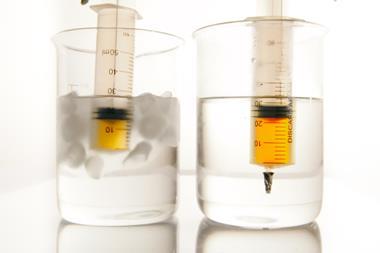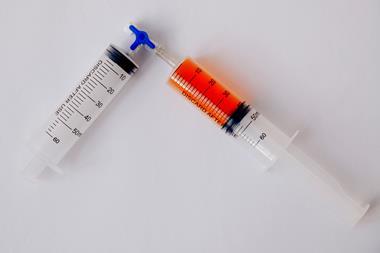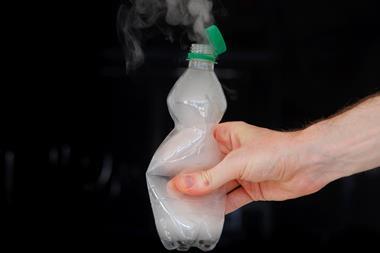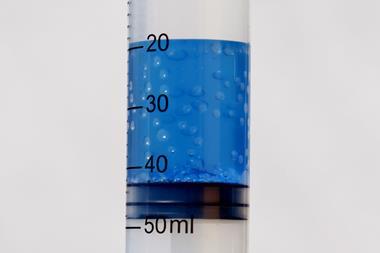Everything you need to know
-
- Salary range: £25–40k
- Minimum qualifications: Degree-level qualifications (including master’s).
- Skills required: Reading and writing skills, communication, networking skills, collaborative skills, problem-solving skills, mathematical skills, data analysis, digital skills (eg, coding and modelling).
- Training required: Training on how to use specialist laboratory equipment or software required in research and data analysis
- Work–life balance: Academic research roles might involve working flexible hours and working long hours and at weekends. In addition to carrying out research, many academic roles involve attending conferences, a teaching element and writing grant applications, plus administrative work.
- Career progression: There may be the opportunity to progress to a lecturer role, then senior lecturer.
- Locations: Find related work experience positions using our map of employers
More profiles like Ben's
What is your typical day like?
Most days I work to a usual 9-5 schedule, this would usually start by going into the office and dealing with emails first thing. Then if it’s a day with lab work I try to set up experiments in the morning to make sure there’s plenty of time to get them done in case anything goes wrong.I might have meetings with my supervisors to discuss my work or with other PhD students where we discuss recently published new science to keep up-to-date.
When I’m not in the lab I will be mostly based in the office working on my computer, this can involve everything from writing reports or planning and purchasing equipment for future experiments. A few days a week I will be involved in teaching which is usually helping to run a practical laboratory class or facilitating discussion sessions with students. I might also be helping to mark work or give feedback on assignments. PhDs can also be quite social and we will usually go for coffee and lunch together throughout the day, or have a trip out for dinner at the end of the week (at least in non-COVID times!)
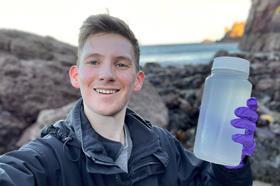
What do you love about your job?
The coolest thing about being a PhD researcher is that you get to make new discoveries, you can be the first person to have ever found the answer to a scientific problem. I also get to work with a team of people from all over the world who have the same interests as me which is quite unique for any job.
I really enjoy traveling and I have lots of opportunities to attend conferences, meetings and conduct fieldwork. Later this year I am hoping to travel to Antarctica to sample chemicals in the ocean which will be a really exciting opportunity I wouldn’t get in many other jobs.
As well as being a researcher, most PhD students also have the opportunity to teach undergraduate students. I particularly enjoy being able to help teach people and have discussions about a wide range of topics beyond my research interests.
Salary range and qualifications required
Minimum qualifications for a PhD: for the role: Typically a minimum of 2:1 undergraduate degree in a subject related to your PhD topic. Many people also have spent some time working in research or have an additional master’s degree. Grades are less important for PhDs but you will need further education qualifications to obtain an undergraduate degree. There are many routes into this such as A-levels, BTEC’s, or degree apprenticeships.
How are PhDs funded and what will I earn? Most science PhDs are funded, which means you are paid to conduct your research. PhD students are paid a minimum amount set out by the research council called a stipend, in 2020/21 this was £15,285. Some students may be paid more depending on their specific funding arrangements. There are lots of different systems for PhD funding, a supervisor or university can help you identify the most suitable funding source. PhD students who teach other students or run laboratory demonstrations will also receive a salary from their university based on an hourly rate.
What skills do you use?
Reading and writing is really crucial to being a successful scientist as you have to spend quite a lot of time reading about what other scientists have already done. Once you’ve done an experiment you also need to be able to tell other scientists about your exciting discoveries so good writing skills are really important. As scientists we also go to conferences all over the world to tell people about our research and find out more about other scientists, we usually give a talk or present a poster so being a confident communicator or having good design skills will help make your work stand out.
While a PhD is an independent piece of work, most people work in an office with other PhD students and they also often work as parts of international research teams so teamwork and collaborative skills can help you make the most of the opportunity.
For scientists like me who work in the lab we deal with all sorts of technical problems from plumbing leaks to working with multi-million-pound analytical equipment so if you like fixing problems this could be something for you. Problem solving is also important for figuring out why an experiment might not have worked or for the logistical challenges of planning fieldwork. Any PhD produces a lot of data so data handling, statistics and maths are great skills to have. A growing number of scientists are also learning to use coding or modelling to be able to handle their data too.
The great thing about a PhD is you can shape it around your interests, whether you want to do lab work, fieldwork, computer-based studies, or a mix of everything. It’s important to remember that a PhD is part of your training to be a scientist, so don’t be put off by thinking you don’t have all the skills you need, there are plenty of training courses available to help you gain all the skills you need.
How were you inspired to work in chemistry?
I was never particularly good at chemistry at school, I found it really quite difficult and didn’t complete my A-level. My best subject at school was actually English, but I knew I was still interested in science and I had completed my biology A-level so I decided that I’d study biology at university.
While I was at university I rediscovered chemistry when I studied biochemistry, and then I learnt about the role of the environment in biology from studying how microbes survive in different habitats. I decided to combine the two, into what I discovered was biogeochemistry.
When I started my masters degree chemistry really became a tool to do the experiments I needed to do to better understand how the world works. I think that while I never did well with chemical theories at school having to use chemistry in a practical sense to do my job and answer questions I am interested in made me realise the true value of chemistry.
Chemistry is not an easy subject and you do need the motivation to get through what are often tricky concepts, for me that comes from knowing that understanding chemistry is crucial to answering the questions I am interested in about how our planet and life on it works.
What tips or advice would you have for someone looking to start a PhD, or considering a career in biogeochemistry?
My main advice for someone who might be interested in doing a PhD is to say yes to as many opportunities as you can, most people who study for a PhD end up working on something they never knew existed when they were at school. There’s a world of exciting research questions out there, the more you can explore this through work experience, talking to experts, or even looking interesting things up on the internet the better.
In terms of studying biogeochemistry, there are many routes to this. Personally, I studied biology at university after my A levels, I found out about biogeochemistry in the final year of my undergraduate degree and then followed this up with a master’s in earth sciences. While I was working on my masters I found a supervisor I was interested in working with and applied for a PhD with them. The application process is similar to applying for a job, I attended an interview and was lucky enough to be accepted. I never formally studied chemistry at university, I never thought I was very good at chemistry but now it is a key part of my job. Chemistry is part of so many subjects and just because you might not want to study a pure chemistry degree at university doesn’t mean you won’t ever be able to be a chemist. There’s a fair amount of flexibility in being able to switch subjects after your first degree (as I did), following your interests and passions is the most important factor for being successful.
Want to find out more about research careers?
If you’re still at school then and are interested in a research career then try to meet scientists and ask about what they do. Ask your teacher to help you do this either through getting involved with science fairs or online events such as Skype a Scientist or I’m a Scientist.
For people currently studying or those who have completed an undergraduate degree, Find A PhD is where most PhD opportunities are advertised. There are also other routes, if you know you want to work with a specific person you can email them to discuss opportunities directly as there may be non-advertised funding sources available. In any instance, it is always good to contact the person supervising a project before applying.
First published 2021








